How to find guest speakers for online events: complete guide for event planners

The virtual events landscape has fundamentally shifted how audiences engage with online content, creating unprecedented opportunities for event organizers who understand how to leverage external expertise effectively. Finding guest speakers for online events has evolved from a nice-to-have enhancement to a strategic necessity that directly impacts registration rates, audience retention, and lead generation outcomes. According to a Forbes article, "Stars attract stars, and the more appealing your speaker lineup, the better your registration, attendance and, of course, engagement. Modern event planners recognize that compelling speaker lineups serve as the primary differentiator between forgettable webinars and memorable experiences that drive real business results. According to Content Marketing Institute research, 53% of content marketers report that webinars featuring guest speakers produced their best content marketing results in the past 12 months, significantly outperforming single-host presentations across all key engagement metrics.
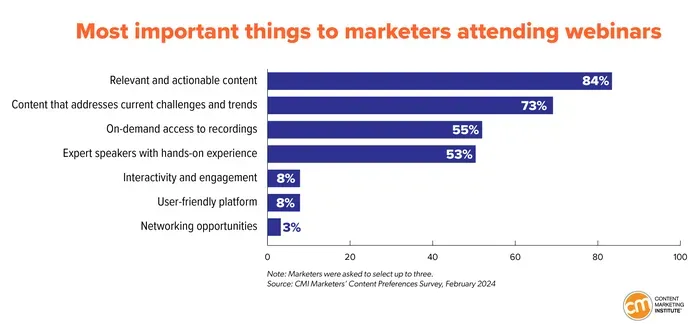
The importance of securing quality guest speakers extends far beyond basic audience appeal in today's saturated digital marketplace. When respected industry experts lend their voice to your online events, they transfer their hard-earned reputation to your brand, creating what behavioral economists call the "halo effect" that cuts through promotional noise and establishes immediate credibility with potential attendees. Guest speakers serve as credibility anchors that transform ordinary marketing messages into trusted thought leadership platforms, explaining why 73% of B2B marketers now consider webinars their most effective lead generation tool. This psychological phenomenon becomes particularly powerful in virtual environments where audiences can easily disconnect or become distracted, making authentic expertise and fresh perspectives essential for maintaining engagement throughout entire sessions. Smart event organizers understand that speaker quality directly correlates with lead quality, as professionals who invest time attending expert-led sessions demonstrate higher intent and conversion potential than passive content consumers.
This comprehensive guide reveals the systematic approach that successful event planners use to discover, evaluate, and collaborate with exceptional speakers who transform ordinary virtual events into extraordinary experiences. You'll discover proven strategies for identifying hidden talent pools beyond traditional speakers bureaus, including advanced techniques for mining podcast networks, social media communities, and industry conferences where authentic expertise thrives. We'll explore creative collaboration models that attract top-tier speakers through value-driven partnerships rather than budget-dependent transactions, from content exchange agreements to thought leadership opportunities that provide mutual professional benefits. Finally, you'll learn relationship-building techniques that transform one-time speaking arrangements into long-term strategic partnerships, creating a network of trusted speakers who become ongoing brand advocates, referral sources, and collaborative partners for future events that compound your reputation and reach over time.
Why guest speakers are essential for virtual event success
Fresh perspectives break through the noise of internal messaging and corporate speak. When a respected industry expert shares their insights on your platform, it creates what psychologists call the "halo effect." Attendees are 73% more likely to stay engaged throughout an entire virtual event when guest speakers are involved, compared to single-host presentations.
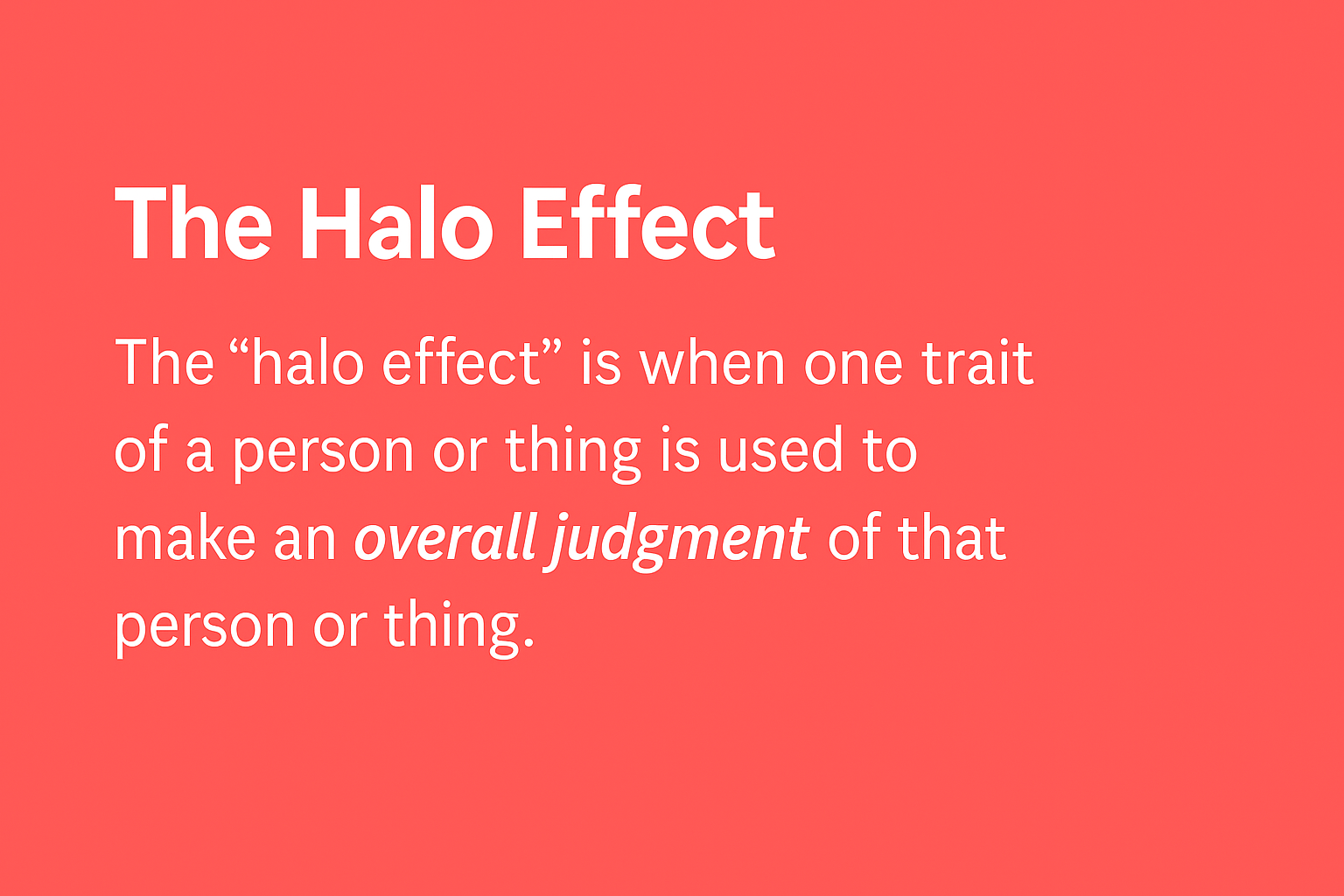
Virtual events with guest speakers see dramatically higher engagement rates because different speakers bring different communication styles, experiences, and storytelling approaches that prevent virtual event fatigue. This engagement multiplier effect is particularly powerful in virtual environments where audiences can sense when conversations are genuine versus scripted. Smart event planners understand that guest speakers are relationship investments, not one-time transactions. The best speakers often become long-term brand advocates and content collaborators when approached strategically. A study published on arXiv highlights that effective virtual meetings correlate with inclusiveness, participation, and comfort in contributing.
Strategic framework for finding the right guest speakers
Finding great speakers isn't about luck. It's about having a systematic approach that matches the right expertise with your specific event goals. Finding guest speakers becomes much easier when you have clear criteria that most event organizers skip.
Defining your speaker selection criteria based on event details
Create a detailed speaker persona just like you would for your ideal customer. This isn't just about topic expertise but understanding the complete profile of someone who can deliver value to your target audience in your specific format. Consider the experience level of your audience when defining criteria - beginners need speakers who can simplify complex concepts, while advanced practitioners want speakers who can challenge their thinking with cutting-edge strategies.
The format matters tremendously in speaker selection. Panel discussions require speakers comfortable with dynamic conversations, while solo presentations need individuals who can carry an entire session's energy. Interactive workshops demand speakers who excel at real-time audience engagement and facilitation. Choose your format thoughtfully to ensure the highest level of audience engagement.
Matching speaker expertise to your specific topic requirements
The best speaker for your event aren't always the most obvious ones. Sometimes the perfect speaker for a marketing event is actually a customer success expert who understands your audience's challenges from a different angle. Map your topic requirements across three dimensions: depth, breadth, and relevance to balance expertise factors based on your event goals.
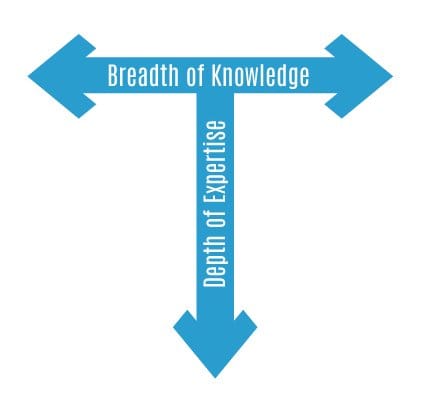
Motivational speakers and keynote speakers are your event's headline act, setting tone and energy. Business speakers and industry experts are your credibility builders with deep, specific knowledge. Thought leaders occupy the sweet spot between inspiration and insight, perfect for strategic sessions where you want to challenge conventional thinking while providing practical frameworks.
What are the best platforms to find speakers?
The speaker discovery landscape has evolved dramatically beyond traditional speakers bureaus. Today's savviest event planners think like talent scouts, looking beyond obvious places to find speakers who bring fresh perspectives and authentic expertise. The best speakers are often just one connection away — if you know where to look.
SpeakerHub
SpeakerHub is an online marketplace that makes finding the right speaker easy and efficient. You can browse speaker profiles, watch videos of their previous talks, and learn about their background, expertise, preferred audience types, and topics they cover. Each profile also shows their preferred way to be contacted – whether that’s via LinkedIn DM, email, or a calendar booking link – so you can reach out in the way they’re most responsive. This saves you time and ensures your request gets noticed quickly. It’s a user-friendly way to discover, evaluate, and contact speakers without endless searching or generic outreach.
Professional networks and online platforms for event organizers
Traditional speakers bureau platforms provide safety and reliability, making them excellent for high-stakes events where you can't afford surprises. However, the real opportunity lies in platform diversity - while established directories provide vetted options, creative sourcing helps you discover hidden gems before they become expensive and overbooked.
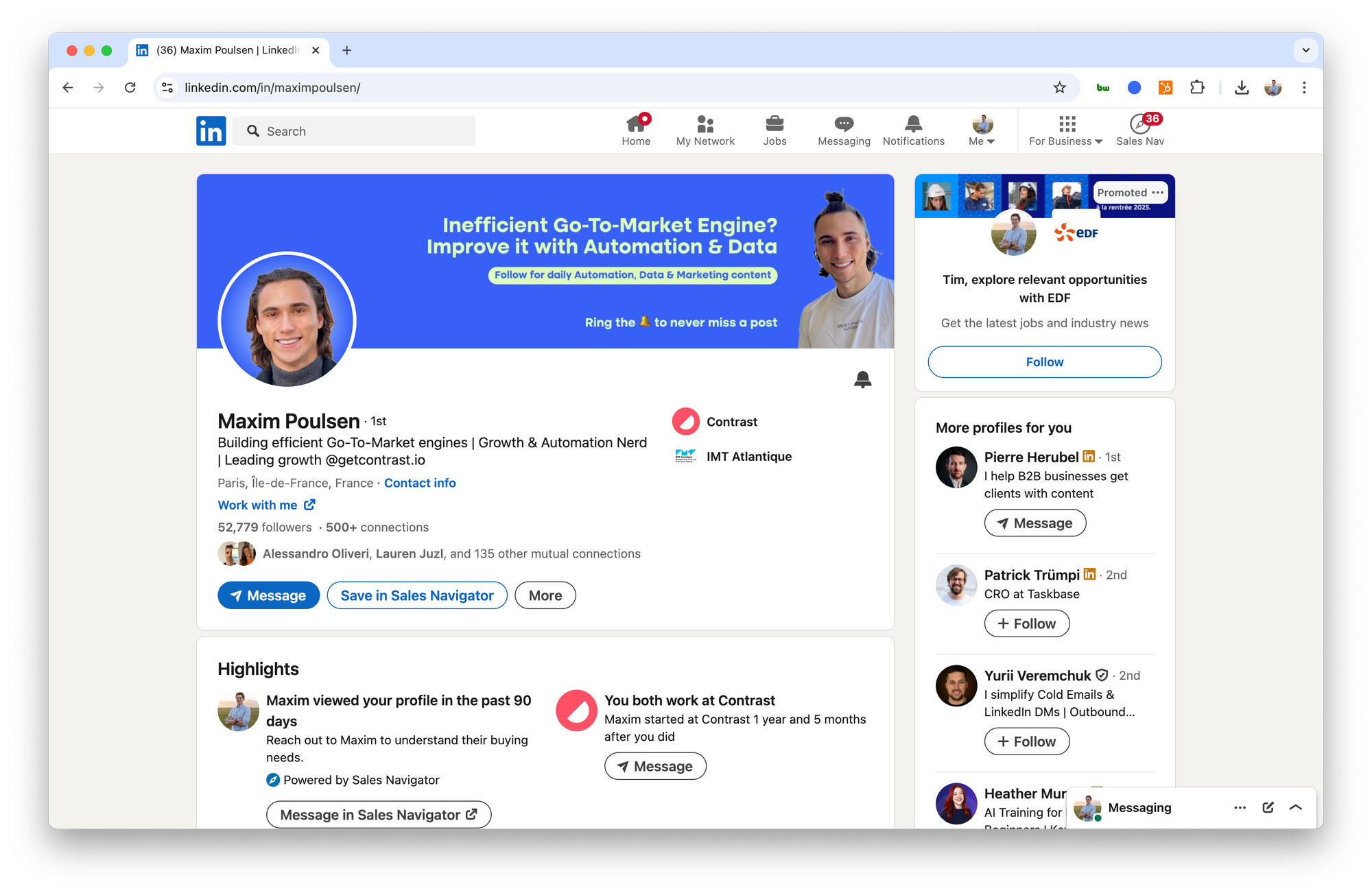
LinkedIn is like a massive networking platform where you can join in on every conversation. Forbes notes "Invite speakers people want to hear and learn from" to increase virtual event attendance and engagement. Linkedin is the single best place to find speakers. Search for professionals who combine multiple relevant skills. Look for people who regularly post thoughtful content, as this indicates both expertise and comfort with sharing insights publicly. Pay attention to engagement levels on their posts rather than follower counts - someone with 500 engaged followers often delivers more value than someone with 5,000 passive connections.
Industry communities and social media groups
Niche communities are goldmines for authentic expertise. Facebook groups, Slack communities, Reddit, and Discord servers often feature active discussions led by practitioners deeply embedded in your target industry. Monitor community discussions to identify natural leaders - people who consistently provide valuable answers and demonstrate genuine expertise through their interactions.
Social media groups reveal authentic expertise through consistent, helpful participation. Community-discovered speakers often bring fresh perspectives because they're practitioners first, speakers second, sharing real experiences rather than theoretical frameworks.
Alternative sources: podcasters, authors, and content creators
Podcasters are naturally excellent virtual event speakers because they're comfortable with remote recording technology and understand how to maintain audience engagement through audio-first communication. Listen to episodes rather than just reviewing guest lists to evaluate how potential speakers handle unexpected questions and maintain conversational flow.
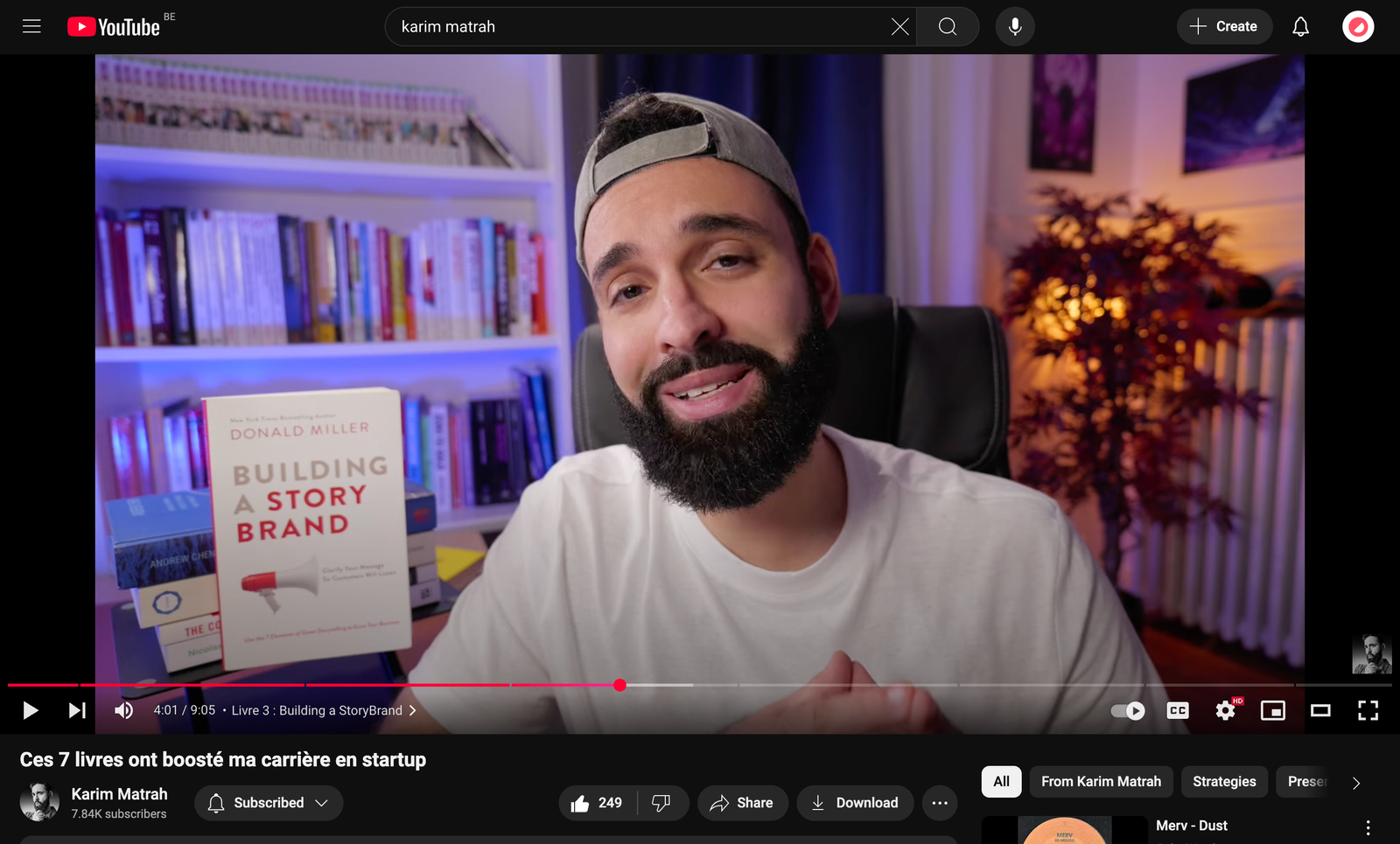
Authors bring structured thinking and storytelling abilities that translate beautifully to virtual presentations. Content creators, particularly those focused on professional development, often possess excellent communication skills and deep audience understanding proven through their ability to explain complex concepts clearly.
Creative collaboration models that attract quality guest speakers
The days of simply asking speakers to "present for exposure" are long gone. Today's most successful event planners think like partnership strategists, creating mutually beneficial arrangements that provide genuine value to speakers while elevating their events.
Content exchange partnerships: mutual value creation
Content partnerships work like intellectual currency exchanges - both parties contribute expertise and walk away with valuable assets they couldn't have created alone. When speakers help create something they can proudly share with their audience, they become invested stakeholders rather than hired performers. Consider co-creating downloadable resources, research reports, or educational series that speakers can use in their own marketing efforts.
Cross-promotion works best when it feels natural rather than forced. Create promotional packages that speakers actually want to share: custom graphics featuring their expertise, quotable insights, or behind-the-scenes content that humanizes the collaboration.
Knowledge sharing and community building opportunities
Position your event as a thought leadership platform rather than just another speaking opportunity. Create "innovation sessions" where speakers can present work-in-progress ideas and receive structured feedback from your audience, transforming your event into a valuable research opportunity while providing attendees with cutting-edge insights.
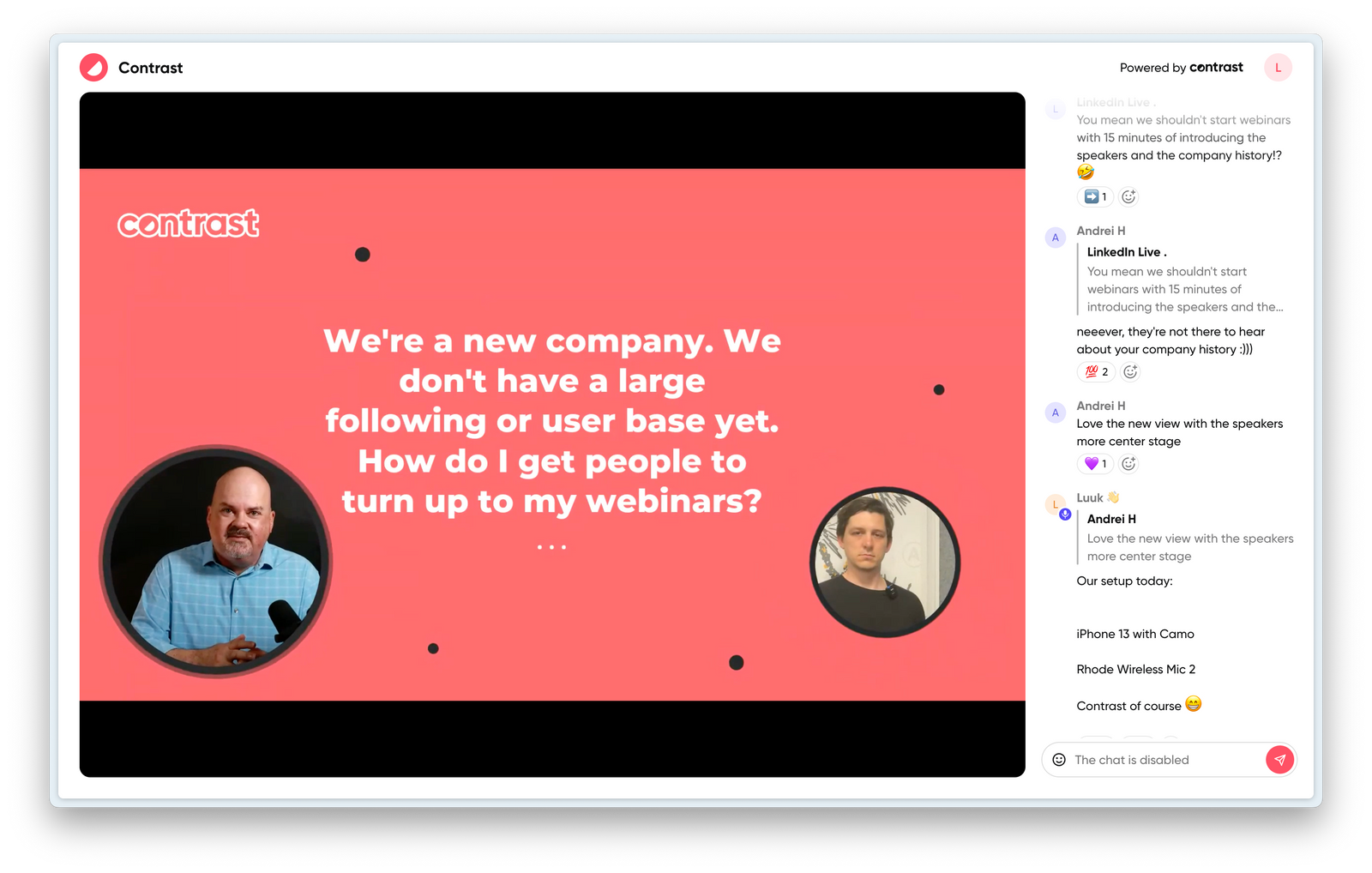
Expert roundtables create peer learning opportunities that many seasoned professionals find more valuable than traditional speaking fees. Participants leave with new insights, potential collaboration opportunities, and genuine professional relationships that extend beyond your event.
How to evaluate potential speakers for maximum impact
Evaluating speakers requires assessing not just what speakers know, but how effectively they can share that knowledge with your specific audience in your format. Digital footprints reveal more about speaking ability than traditional credentials.
Assessing public speaking skills through available content
Before scheduling calls, dive deep into available content: podcast interviews, conference recordings, webinar replays, or informal video content. Look for speakers who demonstrate adaptability in their communication style and can adjust their pace, use visual aids effectively, and incorporate interactive elements naturally.
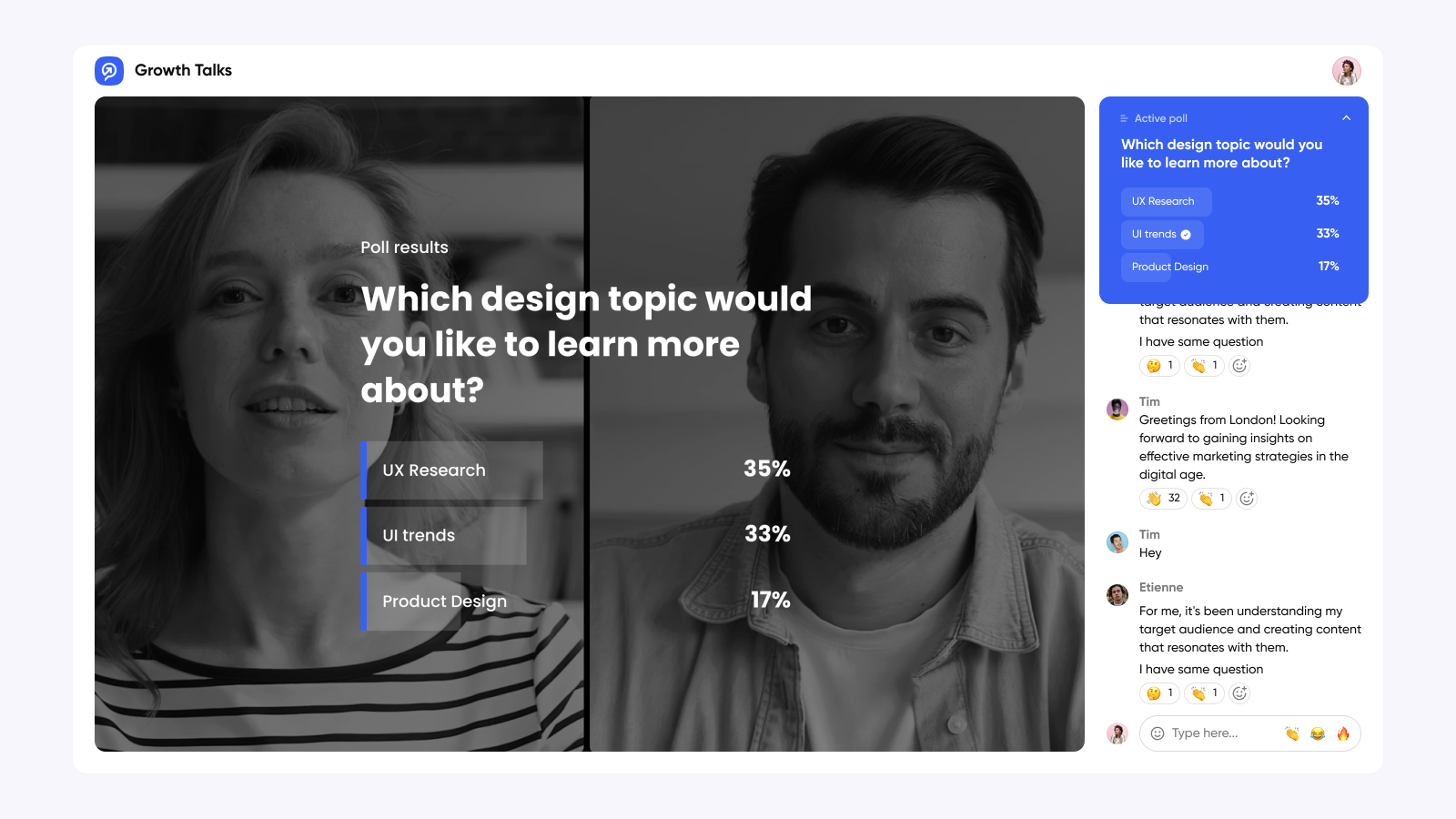
Energy translation is crucial for virtual events - some speakers who are dynamic in person become flat on camera, while others shine in virtual formats. Evaluate their virtual presence specifically since online audiences have different attention patterns than in-person attendees.
Verifying credentials and cultural fit
Seek evidence of practical application, not just theoretical knowledge. Case studies, client results, and specific examples of implemented strategies provide better indicators than academic credentials alone. Cross-reference their expertise across multiple sources for consistency.
Cultural fit encompasses communication style, value alignment, and audience connection ability. Consider your brand voice and event atmosphere - does the speaker's natural communication style complement or clash with your brand personality? Match speaker preferences with your planned event format for natural, comfortable delivery.
Effective strategies for speaker outreach
Successful speaker outreach should feel like opportunity presentation rather than favor requests. Lead with the value you're offering: audience access, content collaboration opportunities, or platform exposure that aligns with their professional goals.

Personalize outreach beyond basic name insertion by referencing specific content they've created or achievements they've accomplished. Be specific about what you're offering and requesting - vague invitations are less compelling than specific opportunities to discuss frameworks with your target audience size and composition.
Budget-conscious approaches for finding speakers
Understanding what motivates different speakers allows you to create compelling opportunities even with limited budgets. Professional development opportunities often appeal to speakers more than modest fees - offer to create professional recordings, provide detailed audience analytics, or facilitate connections with potential collaborators.
Network access represents significant value for many speakers. If your audience includes decision-makers or industry peers that speakers want to reach, this access often motivates participation more effectively than speaking fees. Strategic speaker investment pays dividends when aligned with business objectives, as high-profile speakers can increase registration and brand visibility.
Practical strategies for finding speakers in your network
The most accessible and often highest-converting speakers for your event are often hiding in plain sight within your existing professional ecosystem. Smart event planners start with warm connections before exploring cold outreach, as these relationships typically yield better response rates and more authentic collaborations.
Mining your customer and partner base for speaking talent
Your existing customers and business partners represent an untapped goldmine of potential speakers who already understand your industry and audience. Customer success stories become powerful presentations when delivered by the actual practitioners who lived the experience. Reach out to clients who've achieved notable results using your product or service - they often make compelling speakers because they can share authentic, real-world applications.
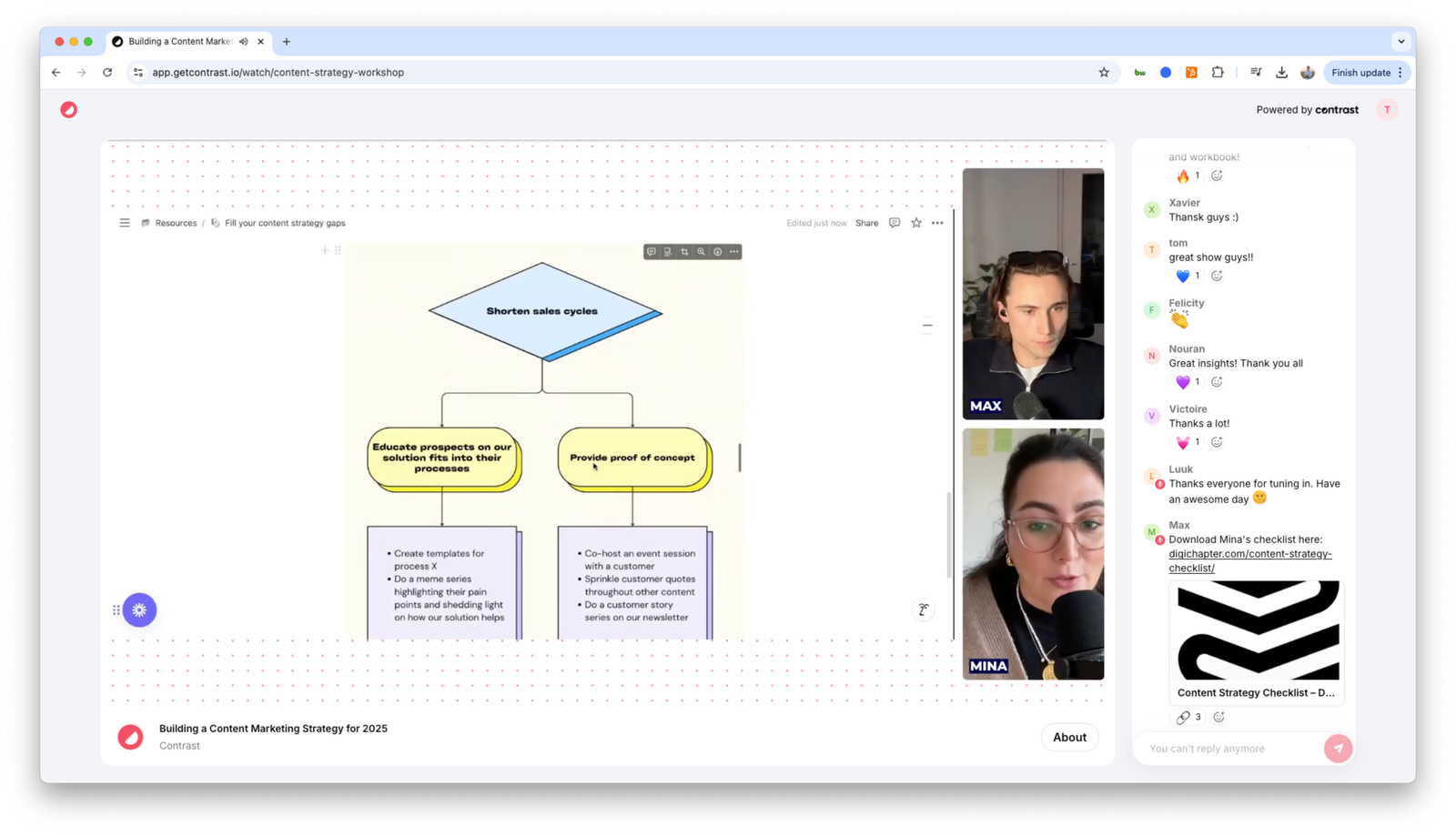
Partner organizations frequently house subject matter experts who complement rather than compete with your expertise. A marketing automation company might partner with a CRM provider, a web design agency, or a content creation specialist. These partnerships create natural speaking opportunities where both parties benefit from the cross-pollination of audiences.
Look through your vendor and supplier networks as well. The consultants, agencies, and service providers you work with often have deep expertise in adjacent areas that would benefit your audience. They're also more likely to say yes because they already have an established relationship with your organization.
Identifying non-competitive industry experts in your local area
Local proximity creates accessibility and cost advantages that many event planners overlook. Search for industry experts in your city or region who work in complementary rather than competing spaces. A SaaS company in Austin might find excellent speakers among the city's thriving startup ecosystem, university professors, or consultants who serve different market segments.
University faculty and business school professors in your area often make excellent speakers because they're accustomed to presenting complex information clearly and usually welcome opportunities to share their research with industry practitioners. They bring academic credibility while often being more accessible and budget-friendly than celebrity speakers.

Local business leaders and entrepreneurs who've built successful companies in adjacent industries can provide valuable perspectives on leadership, growth strategies, and market trends. Check your local Chamber of Commerce, business journals, and startup community organizations for potential speakers who've been featured for their achievements.
Researching speakers from competitor events without ethical conflicts
Analyzing competitor event lineups provides valuable speaker intelligence without crossing ethical boundaries. Look at speakers who've presented at conferences hosted by companies in your space - these individuals have already demonstrated comfort with your industry and audience type. However, ensure speakers aren't under exclusive agreements and that sufficient time has passed since their competitor appearance.
Focus on speakers who complement rather than duplicate competitor content. If a competitor featured someone speaking about marketing strategy, consider inviting the same speaker to discuss team leadership or industry trends. This approach respects competitive boundaries while leveraging proven speaker quality.
Industry association events and trade conferences provide neutral ground for speaker discovery. Speakers at these events aren't tied to specific companies and are typically open to multiple speaking opportunities within the industry. These speakers often have the added benefit of understanding broader industry challenges rather than promoting specific solutions.
Leveraging your team's professional networks
Your colleagues and team members represent extended networks that can significantly expand your speaker discovery reach. Sales team members often have relationships with industry leaders through their prospecting and client work. Marketing team members connect with thought leaders through content collaborations and industry events.
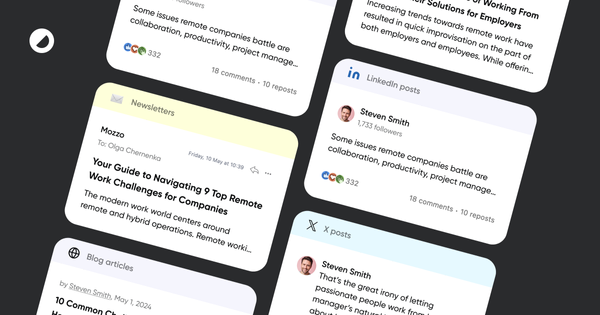
Encourage team members to identify potential speakers from their LinkedIn networks, industry associations, and professional relationships. Often, the best speaker introductions come through mutual connections who can provide warm referrals rather than cold outreach.
Create an internal speaker suggestion process where team members can nominate speakers they've encountered through their professional activities. This might include clients they've worked with, speakers they've heard at other events, or experts they follow on social media who consistently provide valuable insights.
Finding speakers specifically for webinars
Webinar speakers require a unique skill set that differs significantly from traditional conference presenters or keynote speakers. The intimate, often educational nature of webinars demands speakers who can maintain engagement through screens while delivering actionable content that keeps audiences engaged throughout the session.
Identifying webinar-optimized speakers
The most effective webinar speakers understand the nuances of this format - they know how to create conversational intimacy despite physical distance and can adapt their energy for camera-based presentations. Look for speakers who have demonstrated success in educational, tutorial-style content delivery rather than just motivational speaking.
Watch for speakers who regularly appear on industry podcasts, host their own educational series, or create instructional content on platforms like YouTube or LinkedIn Learning. These individuals have already mastered the art of teaching through digital mediums and understand how to break complex topics into digestible segments that work well in webinar formats.
Check their previous webinar appearances and review audience feedback specifically related to their virtual presentation skills. The best webinar speakers receive consistent praise for their ability to maintain attention, facilitate meaningful Q&A sessions, and provide practical takeaways that attendees can implement immediately.
Adapting speaker content for webinar success
Webinar speakers need to understand that their content must be more interactive and practical than traditional conference presentations. Help potential speakers understand your webinar audience's expectations for actionable tips and hands-on learning experiences rather than high-level inspiration.
Collaborate with speakers to ensure their content includes multiple engagement touchpoints: polls, Q&A breaks, screen sharing demonstrations, moderated panel discussions or downloadable resource materials. The most successful webinars feel like interactive workshops rather than one-way presentations, requiring speakers who are comfortable with this collaborative approach.

Create interactive webinars on Contrast
Start for free with up to 30 registrants. No credit card needed.
Start for freeConsider speakers' ability to handle real time questions and technical issues that commonly arise during webinars. Virtual keynote speakers who excel in webinar formats can pivot smoothly when technology fails, engage with chat functions naturally, and maintain their presentation flow despite interruptions.
Addressing common challenges when working with guest speakers
When you contact potential guest speakers, several predictable issues often arise that can derail successful partnerships if not addressed proactively. Ensure your speaker onboarding process anticipates these challenge areas to create smooth collaborations that elevate your event.
Speaker preparation and confidence building
Many excellent subject matter experts feel intimidated by virtual presentation technology or worry about their on-camera presence. Professional speakers may be confident with in-person audiences but nervous about engaging viewers they can't see. Your job is to provide comprehensive support that builds their confidence.
Create detailed preparation materials that include technical setup guides, platform tutorials, and recommendations for optimal lighting and audio equipment. Offer practice sessions where speakers can familiarize themselves with your event management software and test all interactive features they'll use during their presentation.
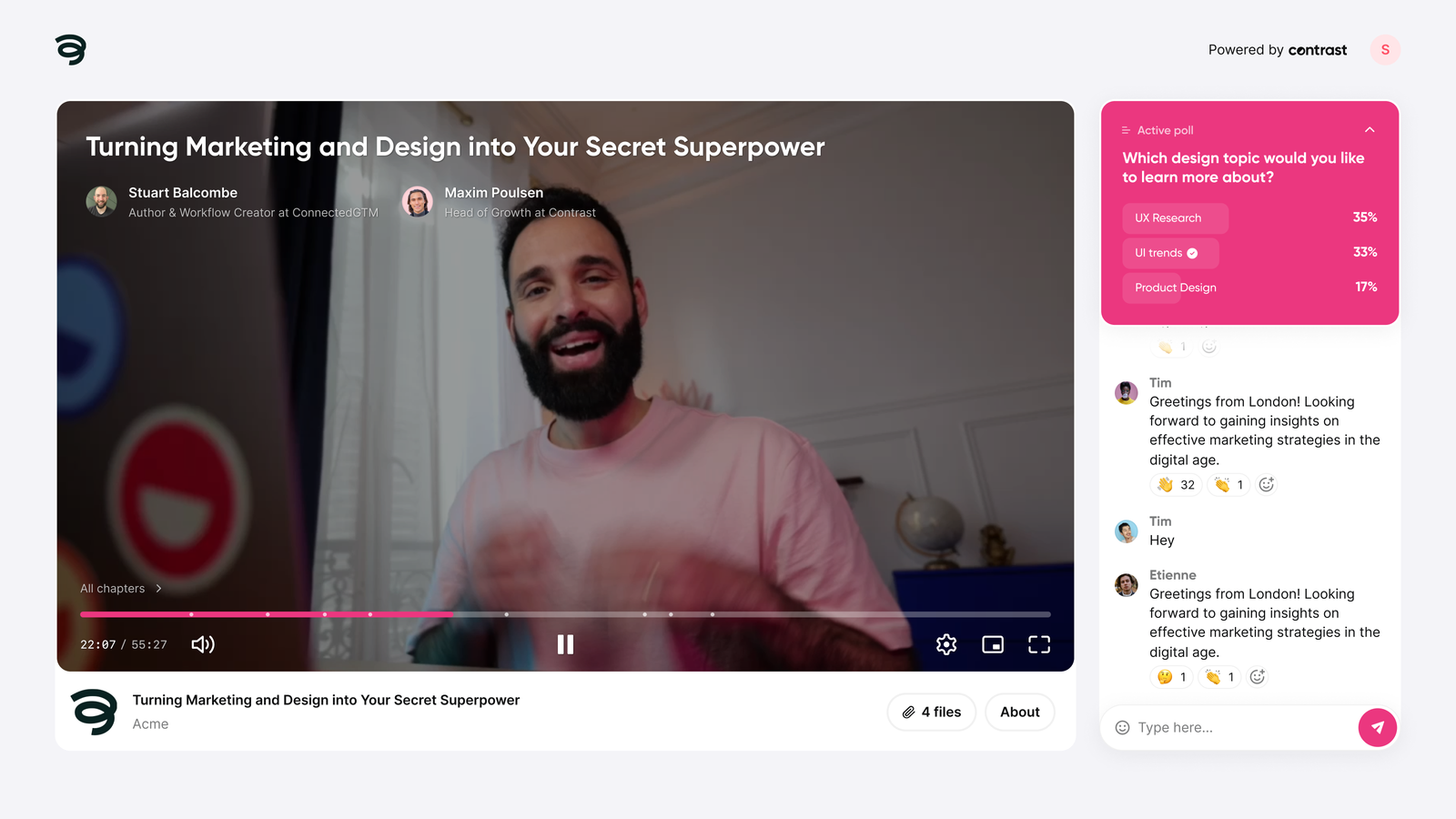
Follow up consistently throughout the preparation process, providing helpful guidance on slide design, content pacing, ask the right questions and audience engagement strategies specific to your event format. Many speakers appreciate receiving sample slides, timing guidelines, and examples of successful presentations from previous events to inspire their own preparation approach.
Managing speaker expectations and logistics
Clear communication prevents most speaker-related problems. Ensure speakers understand exactly what's expected of them: presentation length, Q&A duration, technical requirements, and any promotional activities you'd like them to participate in before or after the event.
Address logistics early in your planning process: Will speakers need to travel for hybrid events? What backup plans exist for technical failures? How will you handle time zone differences for international speakers? What support will you provide for slide creation and content development?
Create a speaker agreement that outlines mutual expectations, including content ownership, recording permissions, promotional usage rights, and any financial arrangements. This prevents misunderstandings and ensures both parties understand their commitments, making the entire collaboration process smoother and more professional.
Long-term relationship building with guest speakers
Building lasting speaker relationships creates ongoing harvests of collaboration opportunities and referrals. Quality speakers know other quality speakers, making referral systems incredibly valuable for expanding your speaker network.
Create speaker communities through regular virtual networking sessions or exclusive access to new opportunities. Forbes notes that "Stars attract stars," suggesting that building a community of high-quality speakers can attract more top-tier talent to your events. When you connect speakers with each other, you facilitate relationships that often lead to collaborative projects and mutual referrals, with your platform becoming the catalyst for valuable professional connections.
Conclusion
Finding exceptional guest speakers for online events isn't about having the biggest budget - it's about approaching speaker partnerships strategically and authentically. The most successful event planners understand that great speakers become collaborators and long-term strategic partners who elevate your brand.
Start with one great speaker relationship and use it as the foundation for building a network of trusted partners. The investment you make in speaker relationships today will generate opportunities, referrals, and collaborations for years to come, making your reputation as a professional partner your most powerful asset in building an exceptional event program.

